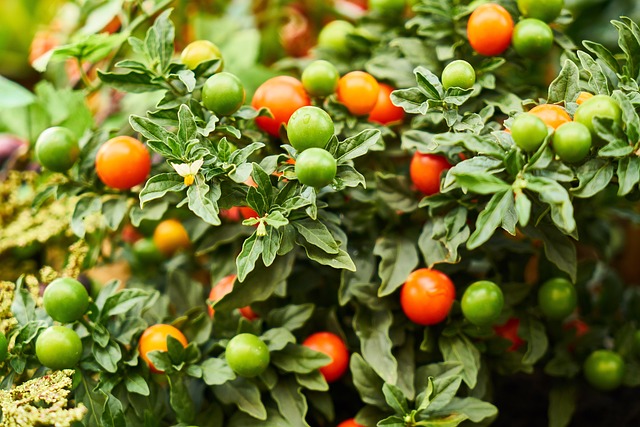Plant Care Factors: The Building Blocks of a Successful Garden
Growing a successful garden requires more than just planting seeds and watering them regularly. To ensure healthy and vibrant plants, it’s important to consider several key factors that can affect plant growth and development. In this article, we’ll explore some of the most important plant care factors and how to optimize them in your garden.

- Soil Quality: The quality of your soil is crucial for plant growth. Soil provides the essential nutrients, water, and oxygen that plants need to thrive. The pH level of your soil can also impact plant growth, with most plants preferring a slightly acidic soil pH between 6.0 and 7.0. To ensure optimal soil quality, consider adding organic matter such as compost, peat moss, or vermicompost to your soil. This will help to improve soil structure, water retention, and nutrient availability.
- Watering: Proper watering is essential for healthy plant growth. Too little water can cause plants to wilt and die, while too much water can lead to root rot and other diseases. The frequency and amount of water your plants need will depend on factors such as the plant species, soil type, and climate. As a general rule, it’s best to water your plants deeply and infrequently rather than shallowly and frequently. This will encourage deep root growth and help your plants to better withstand drought conditions.
- Fertilization: Plants require a balance of essential nutrients to grow and produce healthy blooms or fruits. While soil naturally contains some nutrients, they may not always be in the right proportions or readily available to plants. Fertilizers can help to supplement these nutrients and improve plant growth. When selecting a fertilizer, look for one that contains nitrogen, phosphorus, and potassium in a balanced ratio. Additionally, organic fertilizers such as bone meal, blood meal, or fish emulsion can provide slow-release nutrients to your plants and improve soil quality over time.
- Pest Management: Pests such as aphids, spider mites, and whiteflies can wreak havoc on your plants, causing damage and reducing yields. To prevent pest infestations, consider using natural pest control methods such as neem oil, insecticidal soap, or companion planting. These methods can help to repel pests without harming beneficial insects or your plants. It’s also important to regularly inspect your plants for signs of pest damage and take action quickly if an infestation occurs.
- Root Growth: Healthy root systems are crucial for strong and healthy plants. To promote root growth, consider using natural root stimulants such as seaweed extract, mycorrhizal fungi, or humic acid. These substances can help to improve soil structure, increase nutrient uptake, and stimulate root growth. Additionally, avoiding overwatering and using well-draining soil can prevent root rot and promote healthy root growth.
- Photosynthesis: Photosynthesis is the process by which plants convert sunlight into energy for growth and development. To ensure optimal photosynthesis, it’s important to provide your plants with adequate sunlight. Most plants require at least six hours of direct sunlight per day, although some may require more or less depending on the species. If you’re growing plants indoors, consider using grow lights to supplement natural sunlight. Additionally, ensuring proper ventilation can help to prevent overheating and promote healthy photosynthesis.
- Pruning and Trimming: Regular pruning and trimming can help keep plants healthy and promote new growth. This can include removing dead or diseased branches, shaping the plant to promote a certain form, and removing any overgrown or unwanted growth.
- Mulching: Mulching can help retain moisture in the soil, suppress weed growth, and regulate soil temperature. Organic mulches, such as bark chips or leaves, can also provide nutrients to the soil as they decompose.
- Disease Prevention: Plant diseases can be caused by various factors, including pests, environmental conditions, and poor plant health. Taking steps to prevent disease, such as practicing good sanitation and providing proper nutrition, can help keep plants healthy and prevent the spread of disease.
In conclusion, plant care factors are the building blocks of a successful garden. By optimizing soil quality, watering, fertilization, pest management, root growth, and photosynthesis, you can ensure healthy and vibrant plants that will thrive in your garden.
